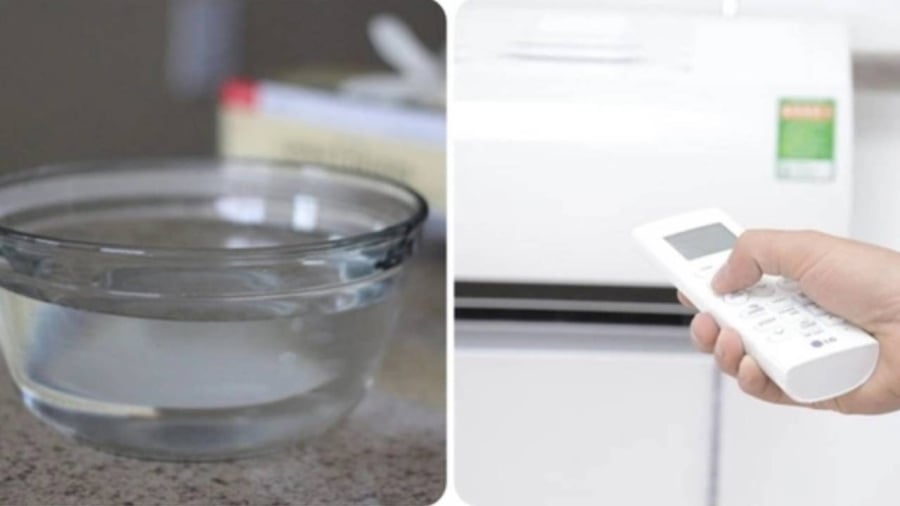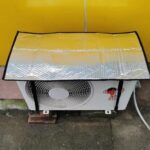The Benefits of Placing a Bowl of Water in Your Air-Conditioned Room
Air conditioners work by drawing warm air from the room, cooling it through a system of conduits and refrigerants, and then blowing the cooled air back into the room. This process not only cools the air but also reduces the humidity, resulting in drier air.
To counter this, you can place a bowl of water in the room when using the air conditioner. The water in the bowl will evaporate, helping to balance the moisture in the air.

What Are the Benefits of Placing a Bowl of Water in Your Air-Conditioned Room?
This simple trick offers several advantages, such as:
Preventing Health Issues
Dry air can lead to a host of health problems, including dry skin, eyes, nasal passages, and throat. For those with sensitive skin or respiratory conditions, dry air can exacerbate their symptoms. By placing a bowl of water in the room, you maintain the necessary humidity, preventing these uncomfortable issues.
Improving Sleep Quality
Dry air can be disruptive to sleep. By maintaining a reasonable level of humidity in the room, you’ll find it easier to sleep soundly and comfortably. This is especially important for young children and the elderly, who are more susceptible to changes in their environment.
Protecting Your Furniture and Belongings
Dry air doesn’t just affect humans; it can also take a toll on your furniture and belongings. Wood and other natural materials can crack or warp when the air is too dry. By using the bowl-of-water trick, you’re maintaining the moisture content in the air, thereby protecting your furniture and extending its lifespan.
Tips for Properly Placing the Bowl of Water
Placement: For maximum effectiveness, place the bowl of water in an area with good air circulation. Avoid placing it too close to a window or direct sunlight, as this can accelerate evaporation and quickly deplete the water.
Bowl Size: Choose a bowl that is proportionate to the room size and can hold a sufficient amount of water. A bowl that is too small may not be effective in maintaining humidity, while a bowl that is too large may obstruct movement and detract from the aesthetics of the room.
Regularly Check and Replace Water: The water in the bowl can get dirty or evaporate over time. Regularly check and replace the water to maintain a clean environment and ensure optimal humidity levels.
Other Ways to Maintain Humidity in Your Air-Conditioned Room
In addition to placing a bowl of water, you can try the following tips to increase humidity:
Use a Humidifier: This is an effective solution to maintain humidity in an air-conditioned room. You can adjust the humidity levels according to your needs, ensuring the air is always at its healthiest and most comfortable.
Introduce Houseplants: Houseplants not only beautify your living space but also help balance humidity levels. Plants like snake plants, palm trees, and ferns are known for their ability to increase humidity and improve air quality.
Is Air Conditioning an Effective Way to Dry Clothes?
The answer is a resounding no. While it may be tempting to speed up the drying process of your laundry by placing it near an air conditioner, the high temperatures emitted by the compressor can cause significant damage to the fabric. The intense heat can degrade the fabric’s structure, leaving your clothes and linens stiff and prone to premature wear and tear.





































